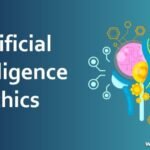How to Leverage Technology in Marketing
In today’s digital age, technology in marketing has become indispensable for reaching and engaging with target audiences effectively. From data analytics to automation tools, innovative technologies offer marketers powerful ways to enhance campaigns, analyze consumer behavior, and drive business growth.
Data Analytics: Insights for Informed Decisions
Technology in marketing begins with data analytics, providing valuable insights into consumer preferences, behaviors, and trends. Through tools like Google Analytics, marketers can track website traffic, user demographics, and engagement metrics. Analyzing this data helps refine targeting strategies, optimize marketing spend, and personalize content to resonate with specific audience segments.
Marketing Automation: Streamlining Campaigns
Marketing automation platforms like HubSpot and Marketo empower marketers to streamline repetitive tasks and workflows. These tools automate email marketing, lead nurturing, and customer segmentation based on predefined rules and triggers. By automating routine processes, marketers can focus on strategic initiatives, improve efficiency, and deliver timely, personalized communications to prospects and customers.

Artificial Intelligence (AI) in Personalization
Artificial Intelligence (AI) plays a pivotal role in enhancing personalization efforts within marketing. AI algorithms analyze vast amounts of consumer data to predict behaviors and preferences accurately. This enables marketers to deliver highly targeted content, product recommendations, and offers tailored to individual interests. AI-powered chatbots also provide instant customer support, improving satisfaction and retention rates.
Search Engine Optimization (SEO) and Content Marketing
Technology in marketing extends to Search Engine Optimization (SEO) and content marketing strategies. SEO tools such as SEMrush and Moz help optimize website content for search engines, improving visibility and organic traffic. Content marketing platforms like WordPress and Medium facilitate the creation, publishing, and distribution of engaging content that resonates with target audiences, driving brand awareness and authority.
Social Media and Influencer Marketing
Social media platforms and influencer marketing have transformed how brands connect with consumers. Technologies like Facebook Ads Manager and Instagram Insights enable precise audience targeting and performance tracking across social channels. Collaborating with influencers who have a loyal following allows brands to leverage their credibility and reach, driving engagement and conversions effectively.
Augmented Reality (AR) and Interactive Experiences
Emerging technologies such as Augmented Reality (AR) offer innovative ways to engage consumers. AR applications allow users to visualize products in their environment before making a purchase, enhancing the shopping experience. Brands like IKEA and Sephora use AR to enable virtual try-ons, increasing confidence and reducing return rates. Interactive experiences foster deeper connections with consumers, driving brand affinity and loyalty.
Conclusion
Technology in marketing continues to evolve rapidly, empowering marketers with unprecedented capabilities to engage, analyze, and convert consumers. By harnessing data analytics, automation, AI-driven personalization, and immersive experiences, brands can create compelling campaigns that resonate with their audience on a deeper level. As technology advances, integrating these tools strategically will be essential for staying competitive and achieving sustainable growth in the digital era.



